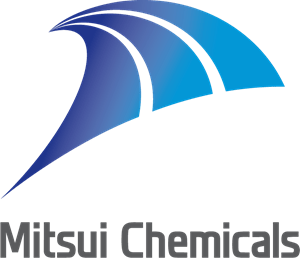
The Government of India is aiming for an exponential increase in the installation of renewable energy systems in the country including 100 GW capacity of solar power by 2022 out of which 40 GW is targeted on rooftops. With this in mind, India’s cumulative solar rooftop photovoltaic installations reached ca. 4.4 GW at the end of 2019 [Mercom]. While the efforts are being directed towards substantially increasing the rooftop solar capacity, it is imperative to ensure that these systems perform with high yields. The rooftop solar team at Gesellschaft für Internationale Zusammenarbeit (GIZ) has analyzed the specific yields of various systems and has found that many systems are performing sub-optimally. The technical advisory company PI Photovoltaik-Institut Berlin AG (PI Berlin) has been contracted by GIZ to identify the causes of sub-optimal performance, quantify those in terms of contribution to loss in generation and propose cost-optimal solutions to fix the quality issues.
Under the Indo-German technical cooperation, the Government of Germany is cooperating with India and has commissioned a project through the German Climate Technology Initiative (DKTI). The project Indo-German Solar Energy Partnership – Photovoltaic Rooftop Systems (IGSP-PVRT) is financed by the German Federal Ministry for Economic Cooperation and Development and implemented by GIZ in partnership with the Ministry of New and Renewable Energy (MNRE). The project aims to support MNRE in achieving the 40 GW targets announced for rooftop solar power plants under the National Solar Mission.
Building on the knowledge gained in the earlier study, GIZ in partnership with the Ministry of New and Renewable Energy (MNRE) aims to conduct the Part II of the kWtokWh study. The focus on this next phase of the study will be to analyze additional sites along with exploring into detailed causes for cell cracking by analyzing logistic and mounting structure aspects for the PV plants. The mission focuses on carrying out 60 on-site technical evaluations, in two phases, along with logistics monitoring of selected rooftop PV power plants in India. The approach of the current assignment will be to help improve the generation of the plants being studied and to help the Indian rooftop solar sector in improving actual generation.
The results will lead to synthesizing a solution, potentially in the form of business models for O&M companies. This report summarizes the results of the assessment of the 60 rooftop PV plants, located in of Jammu (Jammu and Kashmir), Ahmedabad, Anand, and Vadodara (Gujarat), Nagpur (Maharashtra), Lucknow (Uttar Pradesh), West Bengal, Himachal Pradesh and Punjab, as well as the outcomes of the evaluation of module handling and installation practices, for 5 additional PV sites (in construction phase during the study).
Description of the Inspection Methodology





PI Berlin conducted the assessment in three steps.
Preparation Phase
The preparation phase is mainly focused on selecting and securing the access to the roofs. The selection criteria agreed with GIZ and can be detailed as follows:
Identification of a broad list of 65 sites in at least 4 different locations as per the conditions below:
- Installed capacity:
- Between 1-5 kWp (at least 10% of sites)
- 20 kWp and above
- Specific Yield:
- Less than 1100 kWh/kWp (70% of sites)
- More than 1200 kWh/kWp (30% of sites)
- Age of the plant:
- More than one year old
- Recent installations of less than one year old (at least 10 % of sites)
- Ongoing installations
- Availability of reliable generation data
Data Acquisition
Ahead of each visit, the available documentation was reviewed in order to maximize the efficiency during the site inspection. By means of these documents, a digital App-based checklist will be prepared to maximize the accuracy during the on-site inspection.
MCIND Pvt Ltd and Aerocompact Pvt Ltd conducted the site visits spending one day per site. The site inspections focused primarily on aspects that have direct impact on the performance, such as (i) module cleaning, (ii) PV module degradation, (iii) shading situation, (iv) inverter unavailability, (v) logistic aspects, and (vi) O&M considerations. Safety issues, without a direct impact on the performance, were also documented.
Regarding logistics and installation, the assessment will cover i) Pre-shipment inspection criteria, ii) Module packaging characteristics, iii) Transportation, handling, delivery and pre- installation iv) Mounting structure design and robustness and vi) Storage space availability and characteristics. Furthermore, the specific retrofitting actions will be targeted to solve a) detailed causes of cell cracking, b) comparison between plants using dust cleaning robots (DCR) vs manual cleaning, c) appropriate cleaning mechanisms for selected plants, d) module handling practices and e) Module manufacturing quality.

Post-processing and Reporting
The information gathered onsite was post-processed and combined with the results of the documentation reviewed ahead of the visit. Each of the findings responsible for performance drop has been, as far as possible, coupled to an estimated energy loss and feasible mitigation measures. The final statements of PI Berlin in regard to the quantification of the impact of the identified findings, are based on (i) PI Berlin’s long-term experience in the PV sector, (ii) on-site data acquisition, and (iii) simulations using PVsyst software. The results achieved by PI Berlin will provide answers to the following questions:
- Which findings have the highest impact on the PR values of the inspected roofs?
- Which mechanisms are needed to avoid underperformance and ensure the revenues in the next generation projects?
- Why is it important to prevent the issues discovered in the present study?
- How can India benefit of this process?

